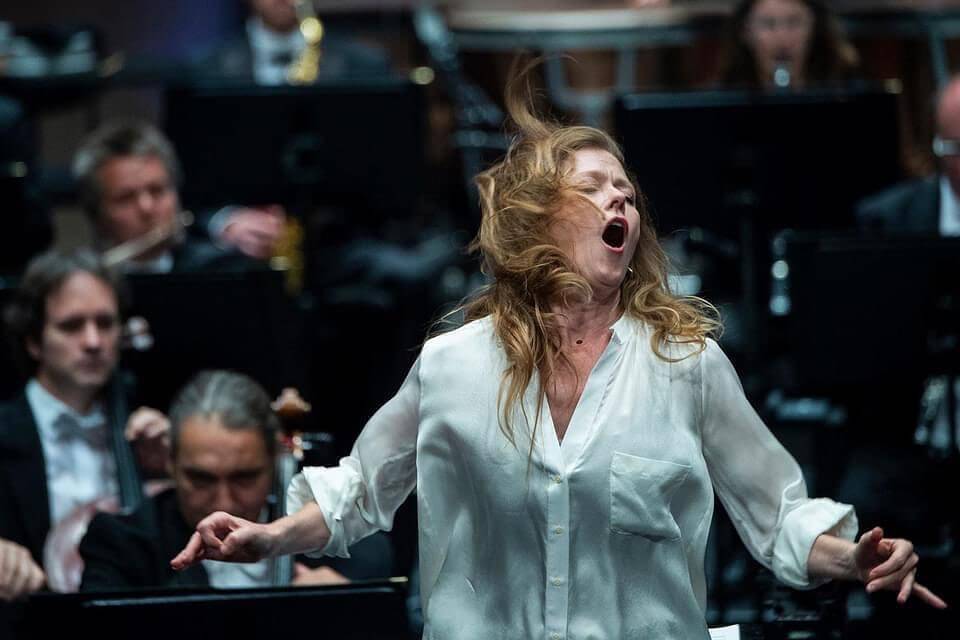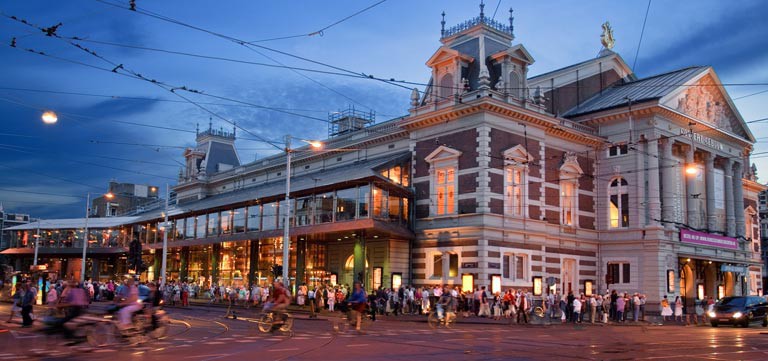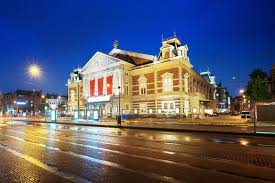How opera finances have slumped in America
OperaThere’s an extraordinary shot of cold reality in SFOpera’s Matthew Shivlock interview with Janos Gereben of San Francisco Classical Voice. Brace yourselves, these numbers are really grim:
‘Ticket sales now only cover 16 percent of our revenue — a linear decline from 60 percent in the 1960s resulting from increases in total expenses, a gradual reduction in the total number of performances over many years, and changing buying habits away from full subscription packages. This means that donors are being asked to take on a larger and larger obligation each year.
‘We have worked incredibly hard as a company to keep expense growth to 2–3 percent a year (which can be very challenging when healthcare escalates at 10–15 percent), but our revenues are growing at 1 percent a year at best. Each year we must find $2.5–3 million of new revenue just to do exactly the same thing as we did the year before. The compounding impact of that over time is staggering.
‘From 2019 (the final season before the pandemic) to now, that is some $15–18 million of new revenue that we must bring in each year, and that is almost exclusively from donors. This has meant that the company’s budget for an eight-opera season is now in the mid $90 millions….’
The game has changed forever.







How does one spell nosedive? And if that is the situation around the corner from Silicon Valley, imagine what it must be like elsewhere. Then there is the elephant in the room which is worth mentioning for the umpteenth time: the unprecedented disappearance of vocal stars. And we don’t mean Miss Universe-pretty; no, we mean Vocal Stars.
Time for big artists and their agents to accept that they really have killed the golden goose and act accordingly when it comes to fees.
Too simplistic to blame principal artists. Better to look at the rise of narcissistic and often uninformed directors and designers who don’t understand the economics of theater and those GMs and boards who support them.
Al final…it ain’t all about the art.
That’s true and my comment wasn’t complete. Of course the houses and companies themselves could always tell greedy performers and agents that their fees aren’t remotely justified in these dire financial times and they could look to actually scout talent (there’s just as much out there as before) rather than playing along with this ‘he/she is with such and such an agent therefore must be good and must sell tickets’ which has resulted in a decreasing pool of overhyped, overpaid and overstretched artists who fly everywhere.
So audiences won’t come unless they can hear the kind star singers which the opera houses can no longer afford to hire, not to mention the star conductors. This is a shame, although Glyndebourne manages to get by quite well it seems with singers who seem about to be making names for themselves and conductors who are not famous for their opera.
Being a subscriber to the ROH and Glyndebourne streaming services, which allows me to see their productions in Canberra, I wonder if a greater emphasis on streaming as a source of income from a much wider audience? Here, the Glyndebourne approach perplexes me. Firstly, they call it Encore, except on their website’s main menu, where they call it On Screen, which suggests that you see it in a cinema. Secondly, the very first paragraph of the Encore web page is targetted at people who have already seen it in the house and *want to see it again*. It’s as if that much wider international audience, from which they could attract thousands of subscriptions, is slightly hoi polloi. I hope this doesn’t apply to Australia, where I live: after all, a Very Important Person at Glyndebourne was born in Australia …
1. What percentage of revenue do tickets constitute at major European opera houses?
2. Personally I’d be inclined to blame Regietheater. Then again, productions in Europe look no better, but sell far more tickets.
in Europe, “”woke”” Regie productions sell out houses with young audiences (Komische Opera Berlin average audience age is in the 40s) and companies aren’t responsible for paying for private health care for employees that goes up 10-15% a year. so the math is a little easier. but of course, free universal health care in the US would be considered “woke” or something, so we can’t have it.
Indeed, health care subsidy, not to speak of universal healthcare, if looked down upon as communist by the right, including the Putin-worshipping far right.
Woke and Regie are different kind of trash. Have a clue what you’re talking about before you post.
2 articles ago:
“Opera is booming across the world, look at iceland with a new hall”
5 minutes later…..
For anybody wondering, that’s called “Journalism”….
This situation is the outcome of different factors. First, demographic. How can one expect audiences to be renewed when the younger generation has little to no exposure to classical music in general? Second, mediocre and unadventurous programming that tends to rehash the same tired warhorses every 3 to 5 years. No new repertoire, and when there is something new, it is often mediocre as well and often used as a vehicle for political and social messaging. There’s great repertoire that could be done but yet remains never explored due to what could be called a form of artistic/financial cowardice. Third, as was said in a comment above, second-rate casts and conductors. People will actually pay more, much more in fact, to see a world-class singer and/or conductor, but might decide to save their money instead of watching a budget production that they may have already seen 5 to 10 times before. It takes a lot nowadays to convince people to physically come to a venue — the effort has to be worth it to them. Fourth, a new culture of administrators that tend to have zero first-hand musical experience and who could (and perhaps should) be running companies in any other field, and that is a real problem when you’re trying to run an opera company, as no amount of polished sophistry may compensate for a lack of first-hand musical knowledge and experience — no matter how well opera boards might be seduced by it. These administrators often value more the amenities the actual building may provide (such as updated seating and restaurants on site) at the expense of the quality of the artistic experience offered. They also tend to see themselves just as critical to the company (if not more) as the people actually responsible for the output people come to hear and see, thus creating in their own companies demoralizing work environments in which people become resigned to the situation and end up simply going through the motions. It’s all part of an arrogance and delusion at the top. Finally, one would not do justice to this issue without mentioning a general cultural decline in which serious topics are shun — a digital culture resulting in a vacuous superficiality that is seriously turned off by anything departing from light, instagrammable visual entertainment. Tragedy and thoughtfulness have no place in today’s society, and that is definitely a problem for an art form such as opera.
“How can one expect audiences to be renewed when the younger generation has little to no exposure to classical music in general?”
Perhaps your most important argument. For a generation, people have given a lot of lip service to this problem, but little has been accomplished on a large scale. It may be too little, too late, as we see audiences dwinding at an alarming rate.
If exposure to classical music isn’t happening regularly in the classroom–especially at the elementary level–busing in a handful (relative to the entire school age population) for rehearsals is futile.
Major classical music companies can and should lobby schools and help to shape music curriculums.
What has SF Opera (and Symphony for that matter) done since the 1960s to court the money class (Silicon Valley and the tech class)?
Nada. Niente. Nothing.
They got into the rut of their comfort zone thinking the denizens of Pacific Heights and Hillsborough would sustain opera forever. Well, the few opera patrons who are left are now in their 80s, and aside from their homes with a sweeping view of Golden Gate Bridge and the Bay, they have no cash and they certainly are no billionaires, and no, they are not bequeathing their homes to the opera.
Better start writing operas about facebooking and googling.
The “money class?” Hate to break the news to you but just because someone has lots of money doesn’t mean they’re interested in classical music. Think Bill Gates.
Bill Gates and many cohorts in his net worth category are funding, with hundreds of millions of dollars, global health initiatives and broad educational endeavors. The days when the “elite” fund the arts are probably dwindling down to a precious few. To be fair, corporate and oligarch sponsorships of causes with far broader appeal than an opera company are just better public relations. I remember well when David Koch donated the funds to redo what had been NY State Theater at Lincoln Center. He was criticized for plowing such big money into a medium for art forms that didn’t appeal to most people (and couldn’t be afforded by most), and most of the City’s art-going populace continued to loathe him anyway, even post-mortem, for his support of conservative politics. But he also gave millions to a new hospital on York Avenue and I don’t hear quite the outcry of revulsion. Big money seems to be serving a bigger proportion of the population, rather than funding opera and ballet entertainments.
Actually, as someone who has worked for both institutions, you do them a disservice. They are constantly and desperately trying to find ways of accessing the enormous pool of money around the Bay Area. The problem is that tech bros, as a rule, simply aren‘t interested in high culture. Or we have not yet found a way of packaging high culture which interests them. Until we can provide young people access to culture, so they grow up thinking it is a normal and important part of life (whether they personally enjoy it or not), we won‘t change this, I fear…
I can bet that your outreach to tech bros was not nearly as rigorous, dedicated, innovative, committed as your outreach to the DEI communities.
I can bet you’ve appointed several DEI officers not a single Tech Bro Officer. I can bet you’ve given away thousands of free tickets to DEI and not to tech bros.
I can bet not a single one of those DEI audience members you’ve reached became a subscriber, or if a few did, not in any numbers to make one bit of difference on the bottom line.
What would give you the idea that someone who studied IT – about as polar opposite from literature, history, music, art, etc. as you can get – would be remotely interested in culture? These are code crunchers whose idea of a good time is spending time with a machine – not people who enjoy the humanities.
Germany has 83 year-round opera houses. The USA with four times the population has 1, the Met, and even it squeezes its entire season into 7 months and rehearses in the remaining period.
San Francisco only has a 6 month season (and barely that.) The house is strongly oriented toward the wealthy. Like all the “larger” US houses, the atmosphere reeks of cultural plutocracy. They become a kind of cultural country club.
This is one of the reasons opera can’t develop a larger audience in the USA. They want lavish productions and star singers for a small number of performances for the wealthy and with tickets that are so ridiculously expensive average people can’t go. The audience for opera thus remains tiny.
From wiki: “The Paris Opera’s annual budget is in the order of 200 million euros, of which €100M come from the French state and €70M from box office receipts. With this money, the company runs the two houses and supports a large permanent staff, which includes the orchestra of 170, a chorus of 110 and the corps de ballet of 150.
“Each year, the Paris Opera presents about 380 performances of opera, ballet and other concerts, to a total audience of about 800,000 people (of whom 17% come from abroad), with an average seat occupancy rate of 94%.”
The budgets, costs, and public for major houses are similar in most of Western Europe. The smaller cities have smaller budgets relative to size. Berlin has three major houses.
Italy has about 12 or 14 year-round houses. They keep costs down, but the quality is good. Small cities in Europe often have full time houses. Freiburg Germany has an excellent house in a city of 200,000. Pforzheim has a year-round house that seats 500 in a city of 120,000. The world class Stuttgart Opera is only 45 minutes away. The Ruhrgebiet in Germany has about 12 year-round houses within a 50 mile radius. Full time houses are also common throughout Eastern Europe. Public arts funding is what makes this possible.
Even Istanbul and Cairo have better seasons that cities like Boston, Atlanta, Denver, etc.
The USA was headed in this direction, but when Roosevelt died, our country was highjacked by a plutocratic elite. While all other Western democracies developeded social democracy with generous public funding for the arts, the USA held to an unmitigated form of capitalism that has ultimately lowered our cultural standards and quality of life relative to Europe.
There are roughly speaking, two types of opera houses in the world: star houses and ensemble houses. Star houses hire celebrity singers while ensemble houses have a regular staff of a singers who are less well-known. The singers in ensemble houses are generally excellent, often just as good as celebrities. Almost all houses in Europe are ensemble houses. This reduces costs and allows them to have many more productions, better ticket pricings, more outreach programs, and far larger audiences.
The houses in Europe usually also eschew lavish productions and use the savings for better ticket prices and far more performances than the USA.
Opera needs good singers, but the focus on celebrities is a vulgarity. Opera is so much more than that.
For more about European vs. American arts funding, see:
http://www.osborne-conant.org/arts_funding.htm
Was that Teddy or Franklin Roosevelt?
Franklin, though he learned a great deal from Teddy’s progressive ideals. Teddy even formed a third party called the Progressives, though it was nicknamed the Bull Moose Party. Franklin took up those ideals whose results we still enjoy to this day such as Social Security. Sadly, many of the programs were dismantled including the wonderful programs for supporting the arts.
William, I am not questioning your oft stated arguments about arts funding.
Yet when I compare Germany and the US, I also see a huge difference in another critical factor: available time for leisure. Germans work fewer hours per week and retire much younger than than Americans. Like it or not, audiences skew older. Chances are today’s sextagenarian and septuagenarian Germans presently attend more performances than three decades ago. But there are more retired or semi-retired people among them than among their US counterparts.
What is your take on this?
Good question. Germany, like many countries in Europe, has a mandatory retirement age. It used to be 65 but was raised to 67. Seniors also get discounts at almost all the opera houses. I notice that there are a lot of white haired people at the opera in Germany. The average earlier retirement in Germany might be a factor in audience size, though I’m not sure how much of a factor.
At the same time, I also notice that basically every German house has extensive outreach programs and there are usually productions for children in every season. In Germany, an opera house is never far away, so the schools often make class trips to opera and orchestra performances. In the USA, by contrast, the houses rarely have productions for children and families. And the closest house can be very far away. The US houses also simply don’t have the necessary funding for children’s programs. The age spectrum for interest in opera in Germany is thus wider than in the USA. I think this is a larger factor than retirement ages. Germans don’t go to the opera because they have more free time, but because the MAKE time for opera. The attendance rates for the houses (sold seats) remains quite good, and even though the productions are often quite challenging. So far so good, and let’s hope it remains.
Do you think outreach programs really build new audiences? I wish they did. But I doubt it. I believe at best they complement other experiences.
If children listen to classical music only once every few weeks or months, it will stay foreign to them—like a foreign language.
If, on the other hand, children are regularly exposed to classical music at home, through listening and playing, then of course they can build on their experiences when attending performances.
The latter has been my observation with my children and those of friendly families.
After all, many US orchestras do have outreach programs. I’ve seen many kids go through the motions of attending events, maybe learn to behave themselves, even when listening to music that is foreign to them.
Yes, music education and appreciation is a complex Gestalt. But no amount of education will get people to an opera house if there aren’t any affordable and within a reasonable distance .
America funds Ukraine and NATO for Europe; Europe funds opera houses for itself.
How much should Congress reduce in aid to Ukraine and Israel in order to build more opera houses in America?
Just asking.
It’s true. The US subsidies in defense spending for Germany since WII comes to trillions of dollars.
Not mentioned is that most of those 83 year-round opera companies have their roots in the court theaters of the numerous kingdoms, principalities, dukedoms, etc. of Germany, established and maintained by rulers so wise and benevolent that some 7,000,000 Germans fled to the United States, its lack of publicly-funded arts notwithstanding.
There has been very little German immigration to the USA since WWII. They seem to feel life is better in Germany.
You are about to see what happens when American capitalism stops enabling European socialism.
San Francisco, Los Angeles and New York are all opera cities that are losing audiences and donors because an evening of opera (tickets, travel, parking and dinner) is beyond many people’s ability to pay, and the city centers have become less safe for those walking around. Better singers or productions are unlikely to counter these issues.
Another business failure in San Francisco? If you’ve been there in the past few years or keep up with what the situation is in the city this dire story from the opera wouldn’t be any surprise at all. There dozens of YouTube videos clearly showing the godawful conditions: the homeless, drug-addicted are everywhere. People use the sidewalks as a toilet. Shoplifters have forced hundreds of once thriving businesses to shutter up and leave. The one-party, liberal Democrat rule in SF and California have utterly ruined the place. There’s no way the opera will get away unscathed. SF used to be a wonderful, beautiful place to go for concerts; not anymore.
Even 50yrs ago when I first visited SF, there were druggies comatose on the pavements and plenty of evidence of decline. It felt very unsafe and I could not understand why it was called the most beautiful city in USA, it all looked so tacky with little to recommend it.
Crime was a problem and it has been the only city where I have been mugged.
Never got to a concert or the opera, it was all Haight Ashbury and hippies in the park then -make love not war.
9-11-2001 was the beginning of the end of the old guard support at the Metropolitan Opera. Putting Gelb in as GM has not helped the house, as he wasn’t putting on new productions that met their wants. Louis Ranieri and Bill Rollnick two of the largest donors left the board and stopped paying for productions when he was appointed. The current board has only a few who give real money and the ticket buying public doesn’t show up en masse for entire runs. If this goes on at the MET, the rest of the country does not fare better. More and more of the regional houses will lessen the number of productions per year and eventually close. Opera in America needs a real P.T. Barnum like character to market to the public. Gelb is more akin to someone who works for the Riverside Memorial Chapel.
With some reluctance I cancelled my subscription to the Met’s streaming service, simply because there wasn’t much there.
I should mention that going to the opera from Canberra involves a 300 km journey to Sydney and back, an overnight stay in the middle of town after the performance, not to mention the cost of the tickets. This means that for us, opera is either on DVD/BluRay or it’s streamed.
And at the other end people are struggling to find good productions with great singers and orchestras. I can’t find such combinations in the US anymore, something without woke components, trashy productions, mediocre singers (calling them stars doesn’t change anything), idiotic Reggietheater. I would fly for good opera, but no such luck.
Europeans used to flock to American opera houses to see verismo style productions they could not find any longer over there. The MET, especially used to get opera tours which would help with ticket sales. But when Gelb started doing regie productions, they stopped coming in droves.
I suggest you take a look at what is happening at the Atlanta Opera. It is a completely different story commercially and artistically. The key ingredient is a leadership that is ready to innovate.
Tomer Zvulun has done an excellent job in Atlanta. Perhaps a successor to PG? He’s young, experienced, clearly successful, and knows the Met.
The big question becomes, despite innovation in Atlanta, does the City have the donors to support the company. This is a bigger problem than cities like New York, Chicago and San Francisco who have the tradition. Atlanta’s tradition used to be the MET tour.
People will spend hundreds of dollars on pop and sports programs. The combination of bad productions and lackluster singers has impacted the audience attendance. The culture of classical music is also no longer an integral part of children’s education, in the schools or at home..which also impacts negatively the size or growth of audiences. There’s plenty of blame to go around. I would not blame this on singers’ fees… but there certainly is waste and poor management to consider .
Amen!!!
If things are so grim, maybe they shouldn’t have cancelled Netrebko?
She did not fill the house so, good riddance.
COVID has devastated many live performance venues. Opera in the US may never fully recover because production costs are very high.
A dying art form…..
How much of this problem of funding is due to changes in tax laws giving the wealthy fewer breaks for such contributions? Museums are having problem, too. Methinks that the wealthier folk are having more fun contributing to crooked politicians.
Pay money to see beloved masterpieces trashed and insulted by woke morons and ‘sung’ by pip-squeak non-entities? Just watched a Trovatore on YouTube. Kabava ska (sp. Sorry), Cortez, Zancanaro and Bonisolli. I’m still shaking from the splendor.
william osborne: “For more about European vs. American arts funding, see: http://www.osborne-conant.org/arts_funding.htm”
———
Your lengthy essay sidesteps the affect of demographics and the way they’re influenced by politics that cross the ideological divide. Another thing: Europe is the original stomping grounds of much of opera and classical music. The US is not.
Although Europe isn’t as racially, ethnically homogeneous as it was in the past, it’s still more that way than America is. However, if one wants to marginalize the role of demographics in both culture and politics, look at the way that children (and adults too) in Asian nations like Japan, Korea and China admire at least one aspect of a style of music associated with older Europe—if not also the form known as opera.
In the US, cultural trends (affected by demographics) and political dynamics – and not just economic ones – increasingly stifle a yawn towards classical/opera. For example: Silicon Valley likes being fashionably liberal or leftist, but is also increasingly socially, culturally skittish about old-world-Euro influences.
Opera houses and opera performances were once quite common in the USA. With the advent of cinema, most of these houses fell into neglect because the USA did nothing to sustain opera as an art form. The issue was not demographics, but neglect. The same thing would have happened in Europe if they had not intervened.
From about 1930 to 1960, many US opera houses were destroyed. The magnificent Boston Opera House opened in 1909 and was demolished in 1958 to create a parking lot. Its acoustics were said to be excellent. The building was so solid that three different demolition companies were hired before one could do the job.
In 1980, Boston’s small remnant opera company moved into the repurposed movie theater that was given the name, Citizens Bank Opera House, but the company closed in 1990 due to financial problems. The house reopened in 2004 but is used mostly for the Boston Ballet, popular entertainment, and a venue for video game competitions. According to the last stats posted on Operabase, Boston now ranks 250th in the world for opera performances per year.
The Philadelphia Metropolitan Opera House has a similar history. It was built in 1908 and ceased operations in 1934. For the next 50 years it gradually fell to ruin and was intermittently used as a movie theater, ballroom, sports venue, mechanic training center, and church. In 2017, it was renovated by Live Nation Philadelphia for popular entertainment.
The consequences of this neglect are obvious. According to the last stats on Operabase, Philadelphia ranks 109th for opera performances per year even though it has the 9th largest metro GDP in the world. They no longer use the opera house. The company’s productions are usually low budget with short runs done in often ill-suited rental facilities with pickup musicians. On the positive side, they approach these problems with creative verve and use them as a source of innovation.
The Philadelphia suburban area known as the Mainline has one of the largest concentrations of wealth on the planet while the city has some of the largest and most dehumanizing ghettos in the country. And worse, the ghettos are based on a racial class system. The city has the highest number of people living in deep poverty in the USA, including 60,000 children. Under the USA’s form of unmitigated capitalism, the neglect of cities and people can clearly be correlated with the neglect of the arts. The issue is not demographics but concepts of government.
Detroit tells the same story. The original Detroit Opera House was built in 1868, destroyed by fire in 1897, and quickly rebuilt in less than a year. In 1931, it ceased operations and became a movie theater which also hosted burlesque shows and church services. In 1935, it was gutted and turned into a cut rate department store. In 1966, the building was demolished.
Today, as in Boston, Detroit’s opera company, Michigan Opera, works in a renovated movie theater. As in most US cities, there are few opera performances, so the venue is most often used for other purposes.
The movie theater renovated in Detroit had gone into steady decline as the city around it collapsed. It closed in 1978 after surviving several years exhibiting second-run and soft-core porn films. It briefly reopened again in 1981 but closed after a minor fire in 1985. Despite its troubles, Detroit still has the 24th largest metro GDP in the world but ranks 263rd for opera performances per year. This low number is normative for larger American cities. Opera is thus only a small part of its the house’s useage.
Nevertheless, the renovated theater has revived its Detroit neighborhood. The Michigan Opera recently received a $5 million grant, the largest in its history, but it should noted that the budget for the state opera companies in European cities the size of Detroit are usually in the range of $150 million. With extensive educational programs and affordable tickets, they create large publics, do many more productions and performances, and give their artists far more financial security and respect. Again, concepts of government are more important than demographics. In terms of education, it is the government that creates the demographic for the fine arts.
Europeans also enjoy genuine opera houses whose sight lines, acoustics, workshops, orchestra pits, lighting bays, and storage spaces are often better suited for opera than renovated movie theaters.
Americans often react resentfully when this history and these comparisons are mentioned. They frequently attempt to rationalize a form of American exceptionalism that often leaves their cultural lives impoverished and large areas of their cities in ruins.
There are no greater heroes than the people working to revive and sustain opera in the USA.
I have a similar version of the essay on my website with photos of these old demolished opera houses and the renovated movie theaters on my website. It is here:
http://www.osborne-conant.org/Aletheia-English.htm#Opera%20In%20the%20USA
william osborne: “There are no greater heroes than the people working to revive and sustain opera in the USA.”
—–
In the world of culture, yes, but they’re increasingly today’s version of Sisyphus.
You have to be aware of what the city of San Francisco is going through right now—and has been since well before 2020. When it comes to cities like Detroit or Philadelphia, they have a few more built-in disadvantages than SF does. Boston a bit less so. Etc. But generally, a combination of politics, demographics and changing preferences in American culture are a triple whammy. Not to mention today’s post-Covid economy.
Although you’re partly correct about government funding reflecting what a society favors or doesn’t favor, think of how the city of San Francisco has been pouring hundreds of millions of tax dollars (for many years) into dealing with its various sidewalks full of homeless tents and human waste. Now issues of way too much crime are also impacting SF.
Money for social services could have been re-directed to the city’s opera company, but think of the political row that would have caused. Then there’d be the issue, noted in this thread, of SF Opera being impacted by ticket buyers not wanting to deal with the city’s dysfunction. Or a Catch-22.
So you’re partly correct, but you’re also over simplifying the long-time flaws throughout America.
I’m not even dealing with the matter of noticing during the past few decades a fairly wide variety of people (of different ages, races, ethnicities) listening to – and apparently enjoying – rap music. I recall years ago thinking that rap was maybe just a phase. If it’s a phase, it’s one that’s lasting a few decades.
Bring in great singers in great productions of great operas and you will be amazed at how things will improve! Pretty simple solution.